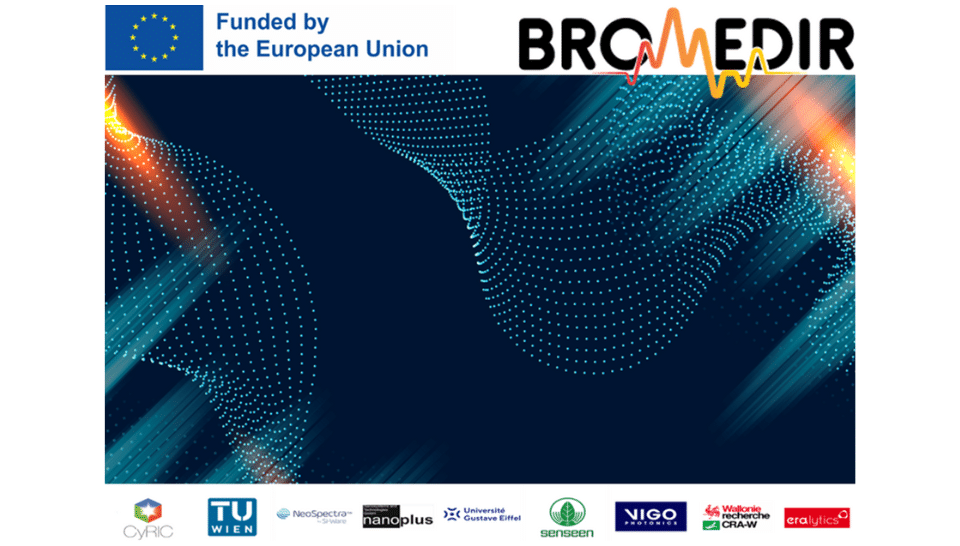Cyprus Research and Innovation Center (CyRIC) is leading a multidisciplinary team in the development of the collaborative European project, BROMEDIR, under the EU’s Horizon Europe Programme.
The project, launched on January 1, has a four-year duration and aims to achieve significant advancements in the field.
According to a relevant announcement, the EU-funded BROMEDIR project goes the extra mile to develop a new generation of miniaturised spectrometers with extended range to allow detection of a large pool of chemicals and/or biochemicals, but also achieve detection at even lower limits.
Reduced price and size with uniform performance and improved ruggedness are only a few of the values offered by the novel system envisioned within BROMEDIR.
The project consortium recently met in Cyprus, where renowned scientists from 6 EU member states, had the opportunity to join hands towards the initiation of the project.
Miniaturised spectrometers are highly required for the identification and quantitative measurement of several chemicals simultaneously. However, conventional spectrometers are bulky benchtop instruments which need to be increasingly upgraded to meet current requirements. The concept of miniature spectrometers to reach a broad spectral range and maintain high sensitivity is exactly the main challenge addressed by BROMEDIR.
The project aims to innovate by developing a new generation of FTIR (Fourier Transform Infrared) spectrometers for liquid sensing and PTS (Photothermal Spectroscopy) ones for gas sensing. In addition, a new cloud-based platform will be developed to offer smart approaches, advanced optical configurations and data analytics. Therefore, the overall system approach intends also to achieve a faster analysis of data, with results easily accessed from anywhere by the end-user.
The novel BROMEDIR devices will be demonstrated in the following three applications:
1) Sustainable farming will focus on cow farming. BROMEDIR will be used for on-farm, fast analysis of individual cow milk samples aiming for the nutritional value of milk and cow’s health traits that can indicate physiological imbalance.
2) Fuel quality control will focus on both monitoring jet fuel quality and control of biodiesel percentage present in automobile and marine diesel. The validation involves the control of specific contamination which affects the thermal stability of fuel leading to engine deterioration.
3) Hydrogen supply chain quality monitoring will focus on trace contamination detection of hydrogen during production and supply to end-customers that require continuous measurement. It should also be noted that, especially for the Green Deal, successful technical implementation and a reliable 24/7 operation of the hydrogen supply chain are key success factors.
The project partners are CyRIC from Cyprus, TECHNISCHE UNIVERSITAET WIEN and ERALYTICS GmbH from Austria, SI-WARE-SYSTEMS, UNIVERSITE GUSTAVE EIFFEL and SENSEEN from France, NANOPLUS NANOSYSTEMS TECHNOLOGIES GMBH from Germany, VIGO PHOTONICS from Poland and CENTRE WALLON DE RECHERCHES AGRONOMIQUES from Belgium.







Click here to change your cookie preferences